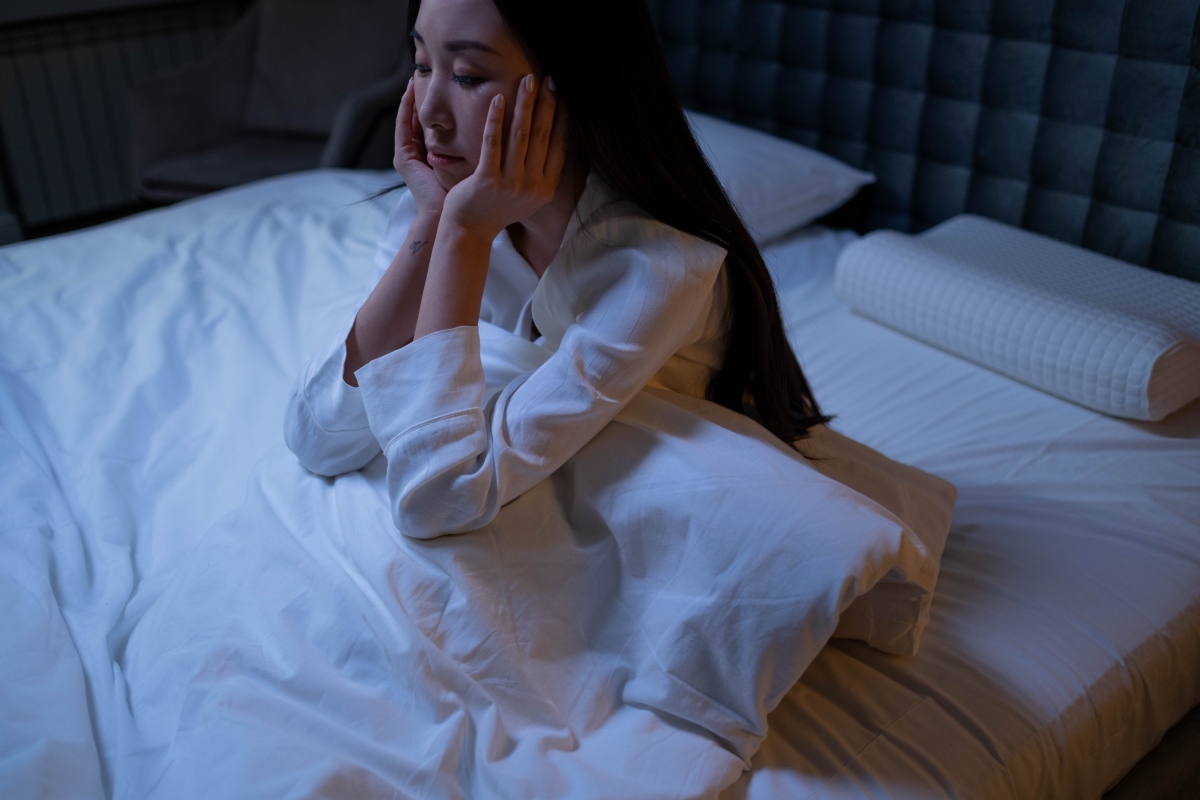Are you having sleep problems? Struggling to fall asleep, stay asleep, or get a good night’s rest? Are you looking for help or some sort of insomnia treatment near you? There is hope and help nearby, please keep reading.
Included on This Page:
- What is Insomnia?
- Risk Factors for Insomnia
- Treatment Options for Insomnia in Arizona
- Find Counseling for Insomnia in Phoenix & Mesa Arizona
What is Insomnia?

Insomnia is the most common sleep disorder and relates to the issues that a person can have with sleep quantity or sleep quality. Insomnia becomes a diagnosable disorder if the person experiences significant distress about their sleep or if the sleep issue causes issues at work or in their relationships with others. Insomnia can look different for everyone – some people with insomnia struggle to fall asleep or stay asleep. While others may struggle with not getting enough sleep or sleeping too much. It’s estimated that approximately 1/3 of adults struggle with some aspect of sleep. Only 6-10% of adults meet the criteria for Insomnia disorder (DSM 5 citation).
Symptoms of Insomnia
Take a look at the list of symptoms for Insomnia below and see how they relate to your experience.
- Difficulty falling asleep, characterized by at least 20-30 minutes of wakefulness despite trying to go to sleep.
- Difficulty staying asleep, characterized by frequent awakenings or at least 20-30 minutes of wakefulness despite trying to return to sleep after awakening.
- Early-morning awakening with the inability to return to sleep, characterized by waking up at least 30 minutes before you were planning to awaken and not being able to fall back asleep.
- Consistent sleep issues (at least 3 days/week for at least 3 months) despite ample opportunity to sleep.
Risk Factors for Insomnia
While many people struggle with sleep, there are certain factors that can make these issues more frequent or severe. The most common risk factors for insomnia disorder are related to environmental stressors that come up from time to time like a big move or a job change. These significant life events can often disrupt our capacity for good sleep. However, insomnia symptoms can also appear because of moderate and prolonged stress. Research has shown that certain groups including women, older adults, individuals who struggle with anxiety, and people who have sensitive nervous systems are more likely than others to experience symptoms of insomnia.
Lifestyle factors like diet and exercise can also have a significant relationship with sleep. Certain diets – the Mediterranean diet, for example – are rich in melatonin, serotonin, and vitamin D that promote healthy sleep habits. Moreover, people who engage in at least 30 minutes of moderate aerobic exercise tend to see an immediate improvement in sleep quality that same night! Interestingly, sleep has a reciprocal relationship with diet and exercise, meaning that poor sleep can also equally influence one’s diet and exercise habits. Research shows that individuals who do not have good sleep quality or quantity tend to eat greater amounts of food and have a lower diet quality.
Sleep hygiene is possibly the biggest variable that people can control when trying to improve their sleep quantity and quality. Sleep hygiene is often an area of focus in treatment and includes the aspects surrounding a person’s sleep as well as the events that happen before going to bed, while in bed, and just after waking up. Research shows that the consistency of an individual’s bedtime routine has a substantial impact on the quality of sleep they get. Additionally, sleep logs help provide a thorough assessment of the sleep process and can identify specific variables that may have initially caused the sleep problem or be contributing to its persistence over time. For example, it might be that racing thoughts prevent you from falling asleep while your pets jumping on the bed disrupt your sleep throughout the night. Once you identify the problems that are causing issues in the sleep process, you and your therapist can identify strategies to resolve those problems.
Treatment Options for Insomnia in Arizona
There are many treatment options for insomnia at MHCA. Our team of therapists uses only the best evidence-based treatment options for insomnia to help you improve the quantity and quality of your sleep. Psychotherapy treatment options include Cognitive Therapy, Behavioral Therapy, and Mindfulness-Based Stress Reduction (MBSR) therapy. Each of these treatments are used to first identify the specific problems that are causing or contributing to the deficits in sleep quality or quantity, then provide unique skills so that the individual can improve their sleep over time.

Our team of therapists collaborate with each client to choose an approach to treatment based on your individual needs and goals and create a custom treatment plan that is right for you. Treatment options for insomnia may include a combination of psychotherapy, medication management, and neurofeedback.
MHCA may also integrate self-care and wellness activities such as cold exposure, heat exposure, physical activity, relaxation-based exercises, and red-light therapy to improve your sleep. Research shows that individuals who commit to treatment can learn skills and strategies to better manage their sleep issues, and that the majority of individuals see a significant reduction in their symptoms after 6-12 weeks of treatment.
Quicker Access to Mental Health Care.
Get the care you need in a timely manner, with in-person or virtual care options to fit your busy schedule.
Accurate Diagnoses to Set You on the Right Path.
From the start, a coordinated approach that focuses on your total well being.
Trusted and Empathetic Providers.
Experience productive weekly sessions that move you toward clearly defined goals.
Find Counseling for Insomnia in Phoenix & Mesa Arizona
Insomnia can be debilitating and cause significant impairment or distress in your life if you don’t seek the appropriate treatment. At MHCA, we provide insomnia treatments that improve your quality of life and allow you to rest easy (get it?). We are proud to be a top provider of Arizona mental health services and have counselors in the Mesa and Phoenix areas that are ready to help you overcome your sleep issues today.
We encourage you to talk with a mental health professional if you have been experiencing problems related to falling asleep, staying asleep, or sleeping too much or too little. Schedule your appointment today to start your healing journey with us.

